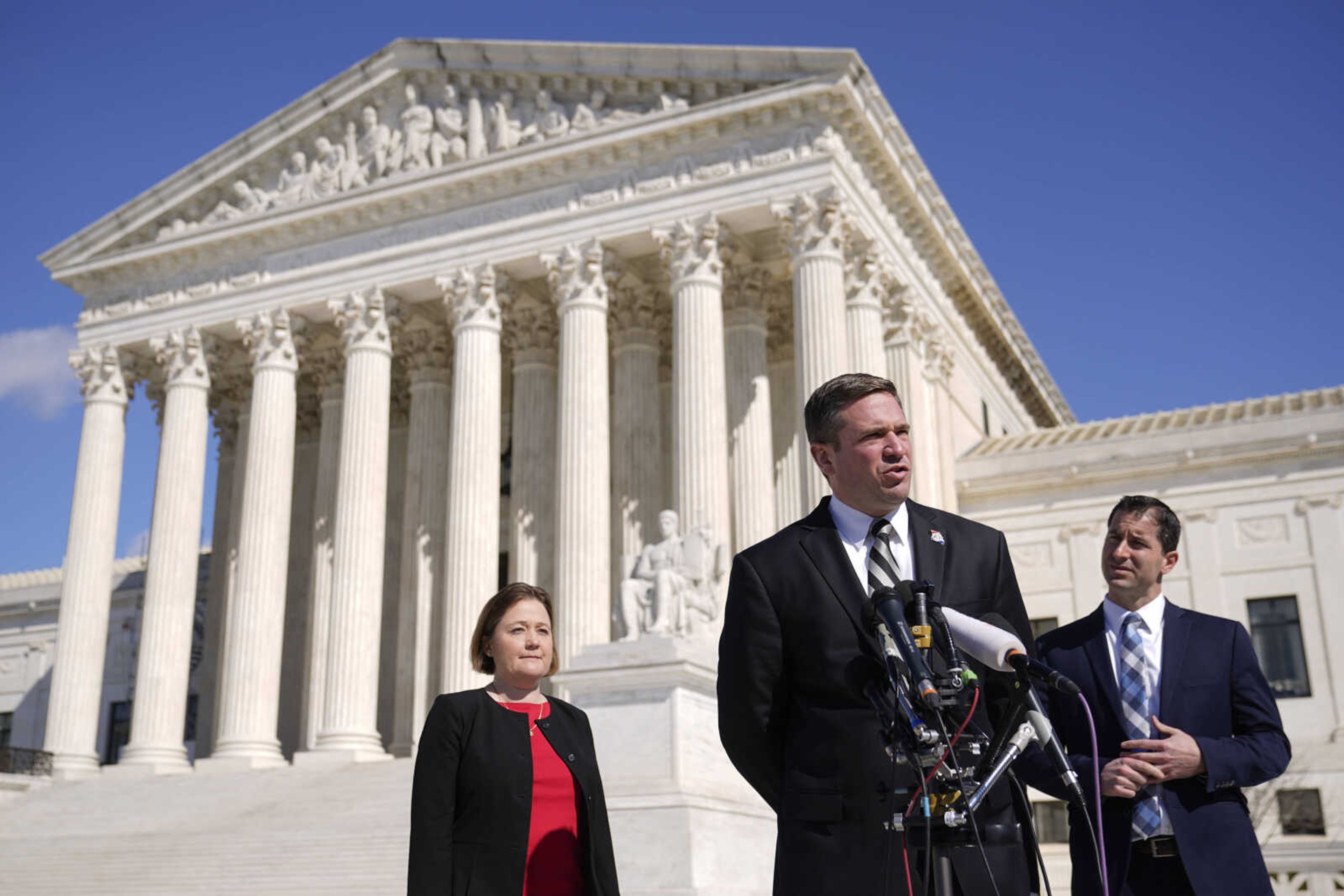Column: Missouri's children won last week. I'm proud to have led the fight.
We put their "science" under a microscope, and it spoke for itself. I've said from day one as Attorney General that I will fight to ensure that Missouri is the safest state in the nation for children. This week, we took a huge step in that direction...
We put their "science" under a microscope, and it spoke for itself.
I've said from day one as Attorney General that I will fight to ensure that Missouri is the safest state in the nation for children. This week, we took a huge step in that direction.
Missouri is the first state to successfully defend at the trial court a law barring gender mutilation for children. Last week, my legal team put a spotlight on the lack of evidence supporting gender transition interventions for minors. We cross-examined the so-called experts, and invited victims of the transgender enterprise to share their stories. Because of that, the Save Adolescents from Experimentation (SAFE) Act passed by the legislature took effect on Monday. Our litigation strategy demonstrates that states can win in court on this issue.
Missourians have asked why I launched an investigation into a St. Louis pediatric transgender clinic after a whistleblower came forward. They've wondered why I issued an emergency regulation restricting the prescription of puberty blockers, cross-sex hormones, and surgery to minors. They've inquired as to why I fought so hard in court to uphold the legislature's ban on these procedures for minors. It's simple: the science does not support irreversible, life-altering treatment for children with gender dysphoria.
For months, activists have insisted that these interventions are well-established scientifically, and too many journalists have accepted that assertion without question, but last week, a Missouri court disagreed.
Once under oath, the plaintiffs' experts were forced to concede at trial that Sweden, Finland, Norway, and the United Kingdom have restricted these interventions because of concerns about their safety. Finland's national health care council called these interventions onminors "an experimental practice" that is not "evidence-based." Sweden's National Board of Health and Welfare declared that these interventions suffer from a "lack of reliable scientific evidence" and that "the risks" from these procedures "currently outweigh the possible benefits."
Even the sources cited by activist groups do not support their own arguments. At trial, plaintiffs were forced to concede that every one of the Endocrine Society's recommendations with respect to treating adolescents with puberty blockers or cross-sex hormones is based on data that the Endocrine Society admitted is "low" quality or "very low" quality. And they were forced to concede that the studies they cite in their favor were dismissed as "very low" certainty studies with a high risk of bias by independent researchers in the United Kingdom.
Even at trial, one of the plaintiff's so-called experts was forced to admit that she recently wrote a grant application admitting there is "scant evidence-base currently guiding the clinical care of TGD [transgender] youth."
Their witnesses also acknowledged that all patients should receive a comprehensive psychiatric or psychological assessment before undergoing these interventions -- only for the plaintiffs themselves to admit later that day that they never received one.
Yet another expert confessed to being unaware of the European health authorities sharply curtailing experimental treatment in their countries.
These so-called experts, with both financial and reputational incentives to testify, continued to push their narrative. But all of that wasn't enough to counter the overwhelming evidence, as well as the compelling stories of the detransitioners who courageously took the witness stand.
Their weak science wasn't enough to counter Chloe's account of how she still bleeds every day after receiving a double mastectomy four years ago at age 15. Their weak science wasn't enough to counter Zoe's story of how she tried to obtain a double mastectomy at age 16, but her home state of Oklahoma had a law on the books that prohibited it. How, years later, thanks to being unable to receive the intervention as an adolescent, she was able to give birth to her child.
Chloe's and Zoe's stories, coupled with our experts' testimony, raised the very important question: why should an adolescent be able to make an irreversible health care decision that is not supported by science?
The judge agreed, when in a two-page order, he stated, "the science and medical evidence is conflicting and unclear. Accordingly, the evidence raises more questions than answers."
This legal battle waged last week was only the tip of the spear in a much larger, nationwide fight for the soul of our country. It is far from over.
But one thing is clear: Missouri's children won last week. And I'm proud to have led the fight.
Andrew Bailey is attorney general of Missouri.
Connect with the Southeast Missourian Newsroom:
For corrections to this story or other insights for the editor, click here. To submit a letter to the editor, click here. To learn about the Southeast Missourian’s AI Policy, click here.










